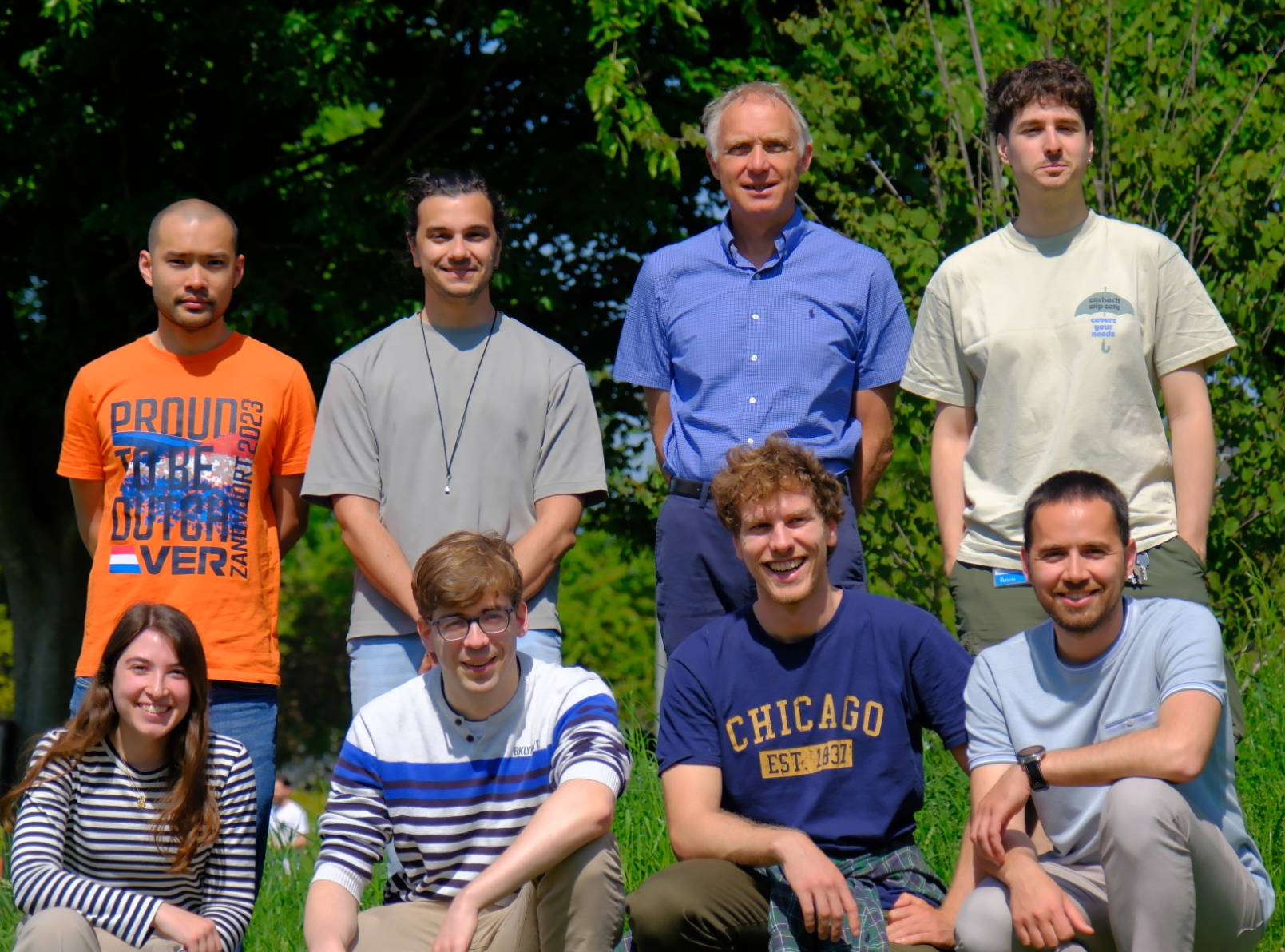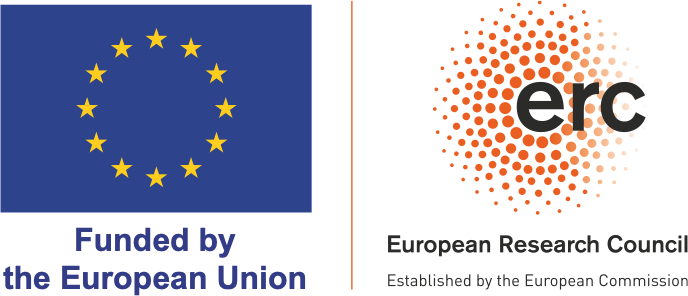ERC ViSioN Project
The high-level objective of Virus Spread in Networks (ViSioN) is to construct an entire set of models for virus spread with corresponding algorithms/software to optimally manage and control a next pandemic outbreak. Each research theme in ViSioN aims to push the current knowledge about epidemics in networks to the extreme boundary of theoretical tractability and computational feasibility to model and predict any outbreak as accurately as possible. The ViSioN modelling framework provides all ingredients, physical insight and understanding complemented with algorithms and computational methods, to manage and control any epidemic in the best possible way. Managing and controlling of an epidemic need accurate models, that are the pillars in an optimization problem with constraints, including also law, privacy and social limitations.
The rich underlying theory of the ViSioN framework can be exploited for other applications in network science, such as human brain networks, information spreading, traffic control and many others.
Team

Principal Investigator
Postdoc Researchers
PhD Students
- Brian Chang
- Robin Persoons
- Matteo D’Alessandro
- David Almasan
- Benedetta Giovannelli
- Federico Ravazzolo
List of Funded Publications
- D'Alessandro, M. and P. Van Mieghem, 2024, "Fractional derivative in continuous-time Markov processes and applications to epidemics in networks", Physical Review Research, to appear.
- Persoons, R. and P. Van Mieghem, 2024, "Finding patient zero in SIS epidemic processes", Physical Review E, Vol. 110, p. 044308. (DOI: 10.1103/PhysRevE.110.044308)
- Raftopoulou, M. , J. M. B. da Silva Jr., R. Litjens, H. V. Poor and P. Van Mieghem, 2024, "Agent Selection Framework for Federated Learning in Resource-Constrained Wireless Networks", IEEE Transactions on Machine Learning in Communications and Networking, to appear.
- Ma, L., Z. Qiu, P. Van Mieghem and M. Kitsak, 2024, "Reporting delays: a widely neglected impact factor in COVID-19 forecasts", PNAS Nexus, Vol. 3, No. 6, page 204.
- Jokic, I., B. Wang and P. Van Mieghem, 2024, "Linear Clustering Process on Networks: A comparative Study", Journal of Complex Networks, Vol. 12, No. 3.
- Van Mieghem, P., 2024, "Eigenvector components of symmetric, graph-related matrices", Linear Algebra and its Application, vol. 692, p. 91-134.
- Persoons, R., M. Sensi, B. Prasse and P. Van Mieghem, 2024, "Transition from time-variant to static networks: timescale separation in the N-Intertwined Mean-Field Approximation of Susceptible-Infectious-Susceptible epidemics", Physical Review E, Vol. 109, No. 3, p 034308.
- Qiu, Z., I. Jokic, S. Tang, R. Noldus and P. Van Mieghem, 2024, "Inverse All Shortest Path Problem", IEEE Transactions on Network Science and Engineering, Vol. 11, No. 3, pp. 2703-2714.
- Millán, A. P., E. C. W. van Straaten, C. J. Stam, I. A. Nissen, S. Idema, P. Van Mieghem and A. Hillebrand, 2024, "Individualized epidemic spreading models predict epilepsy surgery outcomes: a pseudo-prospective study", Network Neuroscience 8(2):437-465.
- Shvydun, S. and P. Van Mieghem, 2024, "System Identification for Temporal Networks", IEEE Transactions on Network Science and Engineering, Vol. 11, No. 2, pp. 1885-18895.
- Wang F., H. Cetinay, Z. He, L. Liu, P. Van Mieghem and R. E. Kooij, 2023, "Recovering Power Grids using Strategies based on Network Metrics and Greedy Algorithms", Entropy, Vol. 25, art. 1455.
- Budel, B., Y. Jin, P. Van Mieghem and M. Kitsak, 2023, "Topological properties and organizing principles of semantic networks", Scientific Reports, vol. 13, art. no. 11728.
- Jokic, I. and P. Van Mieghem, 2023, "Linear Clustering Process on Networks", IEEE Transactions on Network Science and Engineering, Vol. 10, No. 6, November-December, pp. 3697-3706.
- Prasse, B. and P. Van Mieghem, 2022, "Predicting network dynamics without requiring the knowledge of the interaction graph", Proceedings of the National Academy of Sciences (PNAS), Vol. 119, No. 44, e2205517119.
- Van Mieghem, P., 2022, "The origin of the fractional derivative and fractional non-Markovian continuous-time processes", Physical Review Research, Vol 4, No. 2, p. 023242.
ViSioN is funded by the European Research Council (ERC) under the
European Union’s Horizon 2020 research and innovation program (Grant Agreement 101019718).



